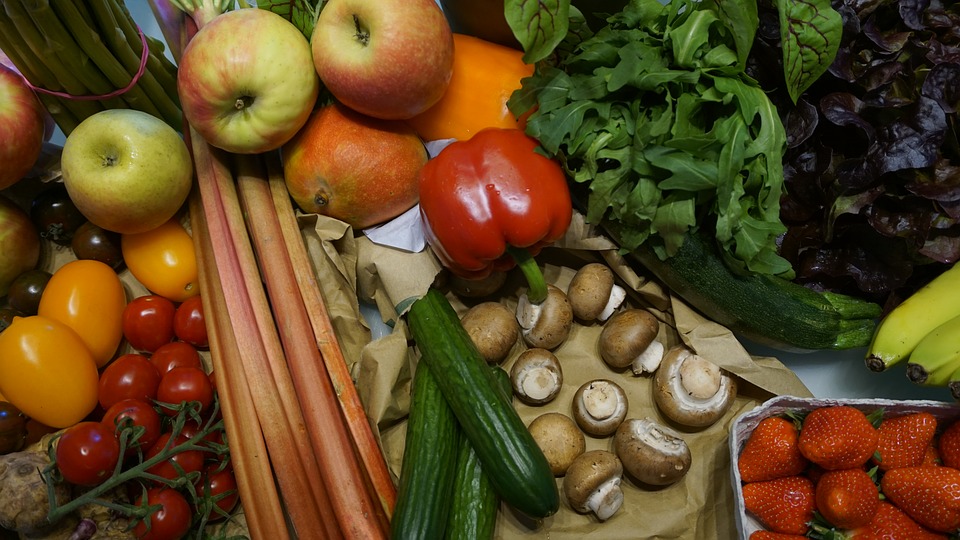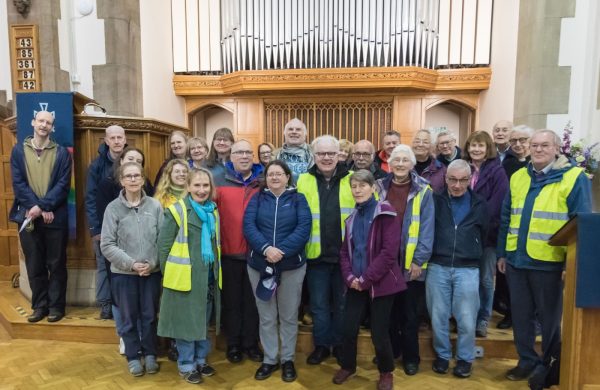Dear Mr Johnson: Here’s how we can end poverty and hunger
With love and determination now, the UK can end food poverty


ON a recent visit to a community food project, a colleague and I got into conversation with one of the volunteers.
In her most difficult moments, this place had been her lifeline. Now, she was recycling that kindness and warmth, welcoming people in and providing a listening ear, a cup of tea and vital relief.
Such stories are not rare. We should be consistently appalled and agitated by the scale of food poverty in the UK, but the compassion that prompts many recipients of food to return as volunteers reflects the prevailing goodness in our society.
It is no surprise that those who have experienced great difficulty want to help others, but the desire for justice runs deeper than that. We see that in the generous donations made to so many food banks, and in the stop-gap projects that provide meals for families in the holidays. It’s clear: nobody is comfortable with people going hungry in this country.
Sticking plaster solutions, however, are unsustainable and inadequate. We must channel the public’s compassion and look to the greater challenge, of tackling the underlying causes of food poverty.
What does this mean in real terms? It means coming together and making a shared and unrelenting commitment to ending hunger in the UK. And it means calling for boldness and determination from our new Prime Minister.
National leaders have seen and embraced the vision of a country free from hunger. In 2015, the then Prime Minister, David Cameron, pledged to end hunger in the UK by 2030, as part of the Sustainable Development Goals.
To reach this goal requires action now, because the crisis is immediate and severe. In 2018/19, food banks run by the Trussell Trust, the country’s largest operator, distributed 1.6 million three-day food parcels, including 89,841 in Yorkshire. During last year’s summer holidays, the need in this region increased by 14.49 per cent – and these figures are only the tip of the iceberg.
Researchers from The Food Foundation estimate that the number of people in food poverty in the UK is 17 times higher than the number accessing Trussell food banks. Unaffiliated community projects and independent food banks are also meeting need every day, and recent research in York reaffirmed that many people are simply put off visiting a food bank by personal pride and a fear of stigma.
All of this can change. Poverty, and the hunger it brings, are not inevitable. There is absolutely no reason why there should be hunger in this country, nor any reason whatsoever why we cannot end it. Our economic and political systems have been designed by human hands and they can be redesigned but we need Government leadership and vision.
Specifically, we need a commitment to halving food insecurity by 2025, as a stepping stone to ending hunger by 2030. It will be for successive Governments to lead on the detail but we know some of the principal issues that must be addressed early: we need to safeguard childhood nutrition all year round; we need the return of effective financial assistance that people can access in times of crisis; we need a Government that will truly listen to those at the sharp end of poverty in the UK; and we need a benefits system that does not push anyone into food poverty or destitution.
What that last point means, in practice, is that benefits must provide an income that allows people to live and that the system must be fit for purpose. Therefore, we must end the five week wait for initial Universal Credit payments, a design flaw in the policy that is causing hardship.
Compassion, coupled with ambition and resolve, is what the country needs in abundance right now.
A food bank we work closely with in Parson Cross, Sheffield, says it has come close to breaking point since Universal Credit was rolled out in the city last year. They now spend £652 a month to keep the shelves stocked, up from £379 previously. In York, meanwhile, one parent told researchers: “Universal Credit has wrecked us. We have just gone on it and I have been told me and my five-year-old will have to go at least seven weeks with no income at all.”
It simply isn’t right that this is the reality for some of our most vulnerable citizens. We cannot be happy with an economy that leaves millions at the mercy of insecure and low-paid work, rising living and housing costs, and a benefits system that leaves many people unable to keep their heads above water. Hard pressed families trying to keep children adequately fed this summer deserve better.
Visit any food bank, community café or breakfast club and you will be struck by the love and neighbourliness that underpins the work. Such compassion, coupled with ambition and resolve, is what the country needs in abundance right now. Let this be an invitation to Mr Johnson and his Government, as he seeks to unite the country. Come and listen to those who are going without food, and resolve to end hunger in the UK




